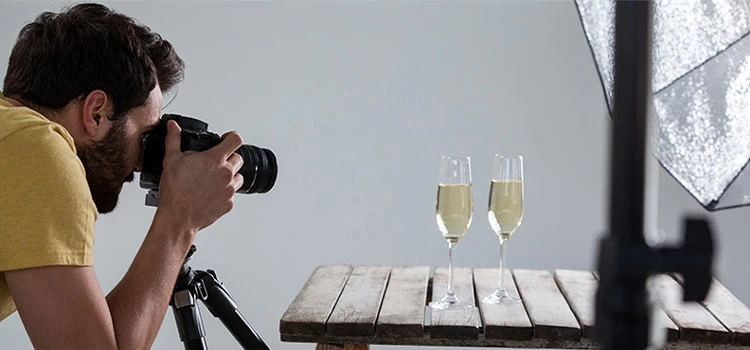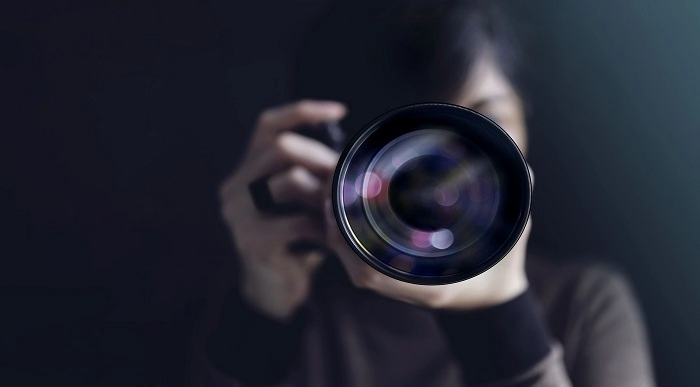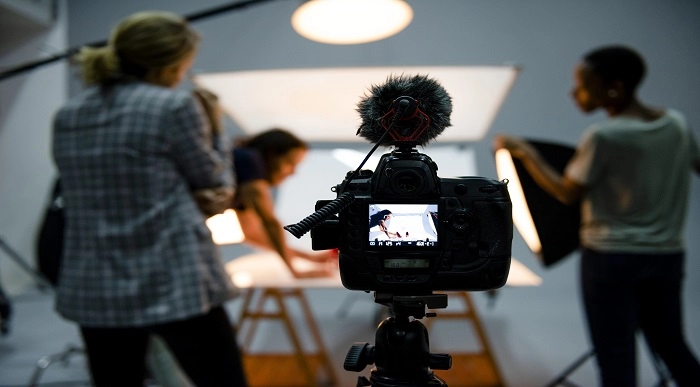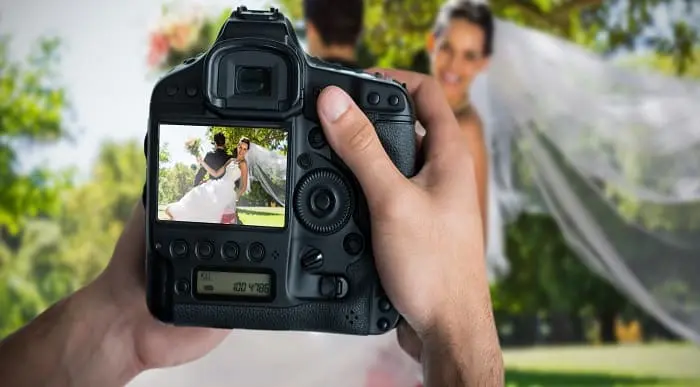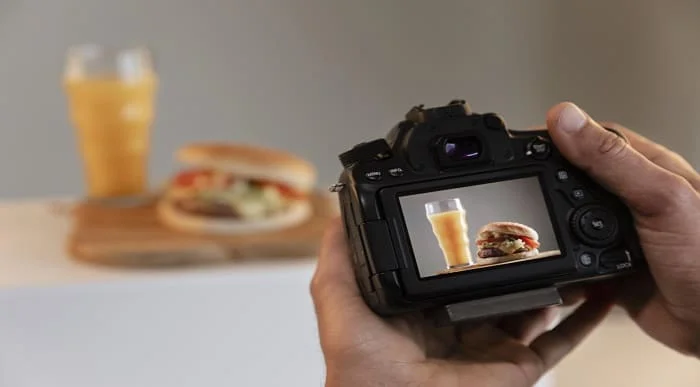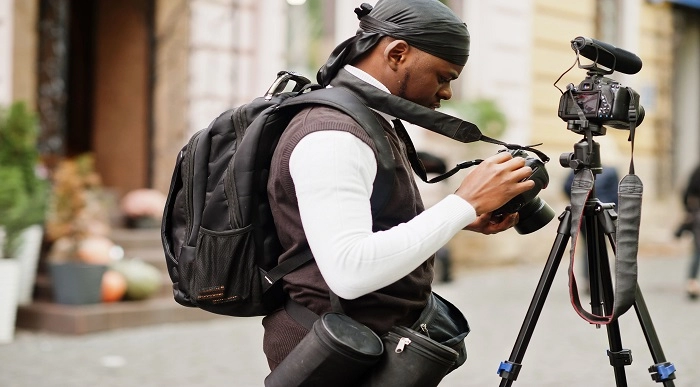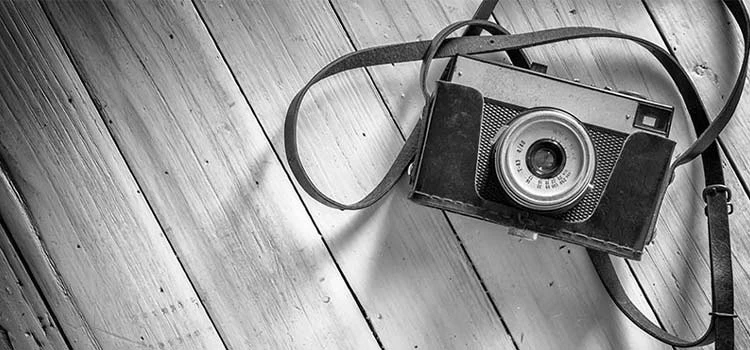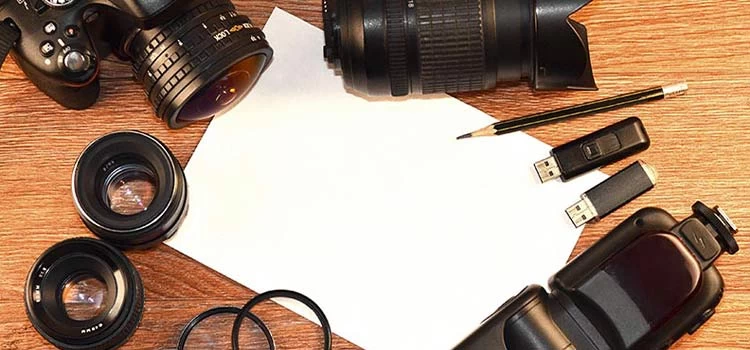Personal Development
10 Tips on How to Become a Photographer?
Are you an amateur photographer planning to be a professional one? Do you want to pursue a career that allows you to capture moments and events? If all these interests you, take the first step to fulfil your dream. Learn how to become a photographer from this blog and be a part of this exciting profession.
Remember, you cannot be a photographer by simply owning a camera. Someone with innate artistic ability and technical skills can thrive better as a photographer. Since most photographers prefer to be self-employed, the field attracts professionals with excellent customer service skills and acute business sense.
Table of Content
- Who is called a Photographer?
- What does a Photographer Do?
- What is the Typical Day of a Photographer Like?
- During the shoot
- After the shoot
- Working With Clients
- Should You Specialise in a Particular Type of Photography to Become a Photographer?
- What are the Essential Skills of a Photographer?
- Creativity
- Technical skills
- Communication skills
- Ability to work independently or in a team
- 10 Tips on How to Become a Photographer
- 1. Start with the Basics of Becoming a Photographer
- 2. Choose the Right Equipment
- 3. Know your Camera
- 4. Decide your Niche
- 5. Find a Mentor
- 6. How to Become a Photographer by Enrolling in a Photography Program
- 7. Complete Internship
- 8. Create a Portfolio
- 9. Get Started
- 10. Keep Practising
- How to Become a Photographer through Photography Education Programs
- How to Get Started?
- Start with photographing your acquaintances
- Contact other industry professionals
- Create your own website
- How Much does a Photographer Earn?
- Conclusion
- What to Read Next:
Who is called a Photographer?
A photographer is a person who captures images using a camera, special lights, and other tools to enhance their subject. While professional photographers run a business and make money by taking photographs, an amateur photographer takes photographs for pleasure through taking images of any event, emotion, place or person.
What does a Photographer Do?
Undoubtedly, the primary job of a photographer is to take pictures. However, besides photography, a photographer has to perform some other tasks as well which are-
- Analyse and plan the composition of photographs
- Use various photographic techniques and lighting equipment
- Edit or modify images using editing software such as Adobe Photoshop or Gimp
- Mount and frame the finished photographs
- Advertise services to attract clients
- Maintain a digital portfolio to demonstrate their work
- Archive and manage imagery
- Conduct workshops on photography
- Freelance photographers schedule appointments, purchase supplies, keep records and bill customers
 Are you looking for a Photography Course Online?
Are you looking for a Photography Course Online?
What is the Typical Day of a Photographer Like?
No two photographers’ days are exactly the same; however, most photographers share a few common duties that they complete each day.
During the shoot
The day of a photographer starts with checking their equipment before they set out for the job. For example, they might confirm whether they have enough fresh memory cards and fully charged batteries for the day-long shoot.
Photographers either work outdoors with natural light or indoors with artificial lights. They might need to work late till evening or after, depending on their client’s requirements.
A photographer usually discusses what he would be doing with his client, model and assistant during the session. This clears out everyone involved in the team of what to expect in terms of time, breaks, and what sort of images the photographer is trying to capture.
Depending on the type of shoot, a photographer could be working for one hour or several. But, once the photography is finished, there is still a lot left to do!
After the shoot
After the shoot, a photographer sorts out the photos he takes during the shoot. No matter how good a photographer is, there will always be some blurry shots, out of focus or otherwise undesirable. Culling these images is the first step toward editing the best photos.
After selecting the best photos, photographers perform the post-production tasks like editing images, cropping out unimportant details, sharpening lines, editing out wrinkles or blemishes and resizing images. Then they send the final images to the client.
Working With Clients
There are many freelance photographers whom individual clients hire to capture weddings, family events, portraits or business functions. These self-employed photographers, besides photography, perform other tasks like billing, sending emails, recruiting new clients, marketing and scheduling.
For photographers who are employed by businesses, perform the tasks of creative meetings, discussions about upcoming shoots and supervising interns or entry-level photographers. A sports photographer, for instance, may spend time researching sports events and coordinating with their editor to determine which events they will photograph.
Should You Specialise in a Particular Type of Photography to Become a Photographer?
As per Britannica, the word “Photography” is derived from the Greek photos (“light”) and graphein (“to draw”), which was first used in the 1830s. Since then, photography has evolved significantly.
There are multitudes of options available when it comes to the genres of photography. While there is a market for almost any type of photography, you have to understand that if you desire to excel in every field, you might lose your focus and get overwhelmed. Your customers can also get confused. So, it is better to specialise in a specific one.
Always consider specialising in the type of photography you are interested in. Along with your interest, be sure whether you have the required skill. Also, be aware of the demand of the customers while choosing the genre.
But, what are the different categories you can specialise in? Have a look at the following-
- Portrait photography- Portrait photography is all about capturing a person’s personality through the use of proper lighting and backdrops. Portrait photographers may take portraits of a newborn or a child on their first day of school or take headshots of a company’s employees to use on the company website.
- Wedding photography- Wedding photographers take photos at wedding ceremonies and receptions. They use their event photography skills to document various settings and groups of people and take portraits.
- Commercial Photography- Commercial photography aims to market a client’s products or services, such as images of buildings, landscapes, and merchandise are subjects of this kind of photography
- Fine Art Photography- Fine art photography is about capturing an emotional response and communicating a message to the audience. Fine art photographers sell their works to individuals, galleries, interior designers, hotels, government and elsewhere on a freelance basis or by commission.
- Fashion Photography-In Fashion photography, photographers take photos for marketing campaigns, fashion shows, and editorial projects. They work closely with designers, advertisers, and magazine editors to develop a cohesive brand identity.
- Landscape Photography- This type of photography portrays a pure form of nature devoid of any human influence. Light, weather, and strong landforms are usually exhibited in landscape photography. Landscape photographers also consider urban settings, industrial areas, orchards and gardens as their definition of a landscape.
- Wildlife photography- A variety of animals in their natural habitat are photographed in wildlife photography. Photographers use their stalking skills and hide themselves while taking photos of wild animals.
- Conduct workshops on photography
- Freelance photographers schedule appointments, purchase supplies, keep records and bill customers
You can also have a look at these amazing photographs published by The Guardian and get inspired.
What are the Essential Skills of a Photographer?
Anyone can take pictures with a DSLR or mobile camera for fun, but it takes dedication and practice to work professionally as a photographer. If you aspire to be a photographer, there are specific skills you can develop to stand out from the crowd. The required skills are-
Creativity
As a photographer, you should try to send an artistic message through your photography. The knowledge for properly framing a scene, selecting a background, using focusing techniques and how the lightness and darkness of an image will affect the overall photographic quality is also desirable.
Other things to consider while evaluating your artistic talent are how well you can determine visually appealing poses, angles, colouring and still images. You should be able to recognise every opportunity to get the perfect shot. What you can capture on film should depict the subject’s personality, beauty and evoke any emotions a viewer can feel within the photograph’s context.
Technical skills
Since photography is both an art and a trade, you will need a combination of creativity and technical skills to succeed. You should know the different parts of a camera and the role that each technical component plays. You should also have a basic understanding of different types of lenses, exposure rates, shutter speed and appropriate filter.
Post-production editing is also an important aspect of your photography. That is why you need to be familiar with software like Adobe Photoshop or Corel PaintShop Pro. If you are into film photography, you will also need to learn about the different types of films, as well as black room and printing techniques.
Communication skills
Soft skills like communication skills are a must while creating and building relationships with potential clients. Effective communication is essential for asking the clients the right questions and understanding their wants or needs. Lack of communication can be the reason for failure to understand the clients’ demands.
Post-production editing is also an important aspect of your photography. That is why you need to be familiar with software like Adobe Photoshop or Corel PaintShop Pro. If you are into film photography, you will also need to learn about the different types of films, as well as black room and printing techniques.
Ability to work independently or in a team
Soft skills like communication skills are a must while creating and building relationships with potential clients. Effective communication is essential for asking the clients the right questions and understanding their wants or needs. Lack of communication can be the reason for failure to understand the client’s demands.
Post-production editing is also an important aspect of your photography. That is why you need to be familiar with software like Adobe Photoshop or Corel PaintShop Pro. If you are into film photography, you will also need to learn about the different types of films, as well as black room and printing techniques.
It is also vital to be self-dependent. Try to complete tasks independently if you are a freelance photographer. You will need to prove your determination to succeed even when no one is watching. If you start a business on your own, you have to be able to maintain the quality of your work and meet deadlines.
Attention to detail
Since photography is very detailed work, you need to dissect a photo and notice details others would ordinarily miss. To be a successful photographer, you should be dedicated to the vision and artistic process and keep trying with patience until you get it right.
10 Tips on How to Become a Photographer
Getting started with your photography career if you are new in the industry can be confusing. That is why we have come up with ten useful steps to make it easy for you. Have a look at the points below.
1. Start with the Basics of Becoming a Photographer
Photography is not merely about taking some nice pictures once in a while and posting on social media with some poetic captions. To ace the photography skill, you need to understand exposure, depth of field, light and know how to get the most out of your camera.
Shutter speed, aperture and ISO-these are the three fundamentals that determine how light or dark the image is and how much of your image is in focus. These are the things that will let you take pictures from a photographer’s perspective. Learning these, along with the basics of focus and composition, you can gradually develop your photography skill.
2. Choose the Right Equipment
You need to decide which camera you should be buying as there is so much to choose from. Your niche will direct you in the right direction. For example, if you are into product photography, you will need specific lights. On the contrary, if you are a real estate photographer, you will need the right lens for the job.
Before purchasing your camera, ask yourself what you need. Are you looking for a DSLR or a mirrorless camera? Do you need a high shutter speed? Powerful autofocus? Once you know the answers and have a budget in mind, do some research about the brands and then go to the store.
The right equipment is not just about your camera; you will also need a good computer and the right editing software. Post-processing is just as important as the work you do with the camera.
It might seem a big expense but remember, this is an investment. You need to spend money to make money through photography.
3. Know your Camera
A camera is only as good as the photographer behind it. So, how well do you know your camera? Do you know the fastest way to adjust the ISO? Does your camera have double exposure or time lapse features? To be a photographer, you need to be familiar with the parts of your camera so that you know where to access a setting.
4. Decide your Niche
It can often get confusing to choose from the different styles and types of photography along with many career paths. That is why you should narrow down your options and find the niche that suits you.
First, think about the kind of photography you enjoy. Once you figure it out, use this as your basis for practice. Be experimental to discover your niche. Selecting a niche would give you direction and focus.
There are several photography specialities to choose from, which are-
- Portrait photography
- Wedding photography
- Fashion photography
- Conceptual fine art photography
- Commercial photography
- Wildlife photography
However, do not just base your decision on your interests though. Perform some market research as well to see where the demands are.
5. Find a Mentor
Try reaching an experienced professional photographer to whom you can go for advice. Photographers that have gone through the process already can be invaluable sources of information. Their insight and experience will be helpful for you on your journey to become a photographer.
Doing photography courses can be an advantage in this regard. They can be a medium of access to photographers who have been through the experience of going professional. You can also join professional photographer associations. This will let you start networking along with learning from fellow professional photographers
6. How to Become a Photographer by Enrolling in a Photography Program
The most essential step to becoming a professional photographer is finding an education program that fits your goals. There are photography programs designed to match each student’s career goals and level of educational commitment. Photography programs are available from the certificate to the master’s level that can cost you from $200 to a maximum of $10,000.
The photography certificate programs are shorter compared to other programs. It takes a few months, whereas an associate and bachelor’s degree in photography usually takes two and four years, respectively. These degree courses provide more in-depth knowledge about photography and can give job candidates a competitive edge in the marketplace.
A master’s degree program is an advanced program that can lead to management positions such as art director or senior photographer.
On-Demand Accredited Courses
Learn new skills from industry experts. Select from more than 2,000 online courses, find the ideal course for you.
7. Complete Internship
It is vital to network with other professional photographers and mentors, especially if you are a budding photographer. It will develop your people skills and you will also get to learn about the necessary technical skills for becoming a professional photographer.
Try looking for vacancies and get a photography job as an intern or an assistant to gain hands-on experience. The key is to get professional photography experience by applying the knowledge and skill-sets that you have. During your internship, focus on learning how to run a photography business and how to deal with clients.
You can visit our other blog, “20 Jobs to Consider if you have Good Communication Skills.”
8. Create a Portfolio
A portfolio demonstrates your abilities as a professional photographer. While creating a portfolio, you should highlight your skills in the area of photography you want to pursue. Practice as much as possible and add your best practice shots to your portfolio.
You can build a studio at home and do a photo session with friends and family or you can build an infinity curve for product photography. Try to be creative as much as possible as your portfolio is about showing potential employers what you have to offer.
9. Get Started
Now that you have walked through all the steps along with educating yourself and creating a portfolio, it’s time to reveal yourself as a photographer. You can either go for contractual jobs or start as a freelance photographer.
Once you start working, your reputation will grow as well as your portfolio. This will lead you to more paid work. However, this might take some time, so do not lose your patience.
10. Keep Practising
Photography is a continuous learning process. You now need to keep on honing your skills by practising various facets of your photography niche. Whether it’s a personal photography project or any unique photography project, continue looking for ways to fine-tune your skills.
How to Become a Photographer through Photography Education Programs
Photography education programs offer Certificate to Masters level courses. The length of the courses depends on the individual programs. You can choose to enrol in any of the following programs according to your preference to master photography skills.
Certificate Photography Program
The Certificate Photography program takes a few months to complete. The program covers the basics of the fundamentals of photography, principles of digital photography, and how to use different software and image manipulation techniques.
Associate Degree in Photography
The Associate Degree in Photography is offered in various Art Schools, Colleges, and Universities. This degree course typically lasts for two years. The associate degree prepares students to learn the different types of photography and various techniques from transparency and negative films to working in a natural setting.
Bachelor of Fine Arts in Photography
The Bachelor of Fine Arts in Photography is typically a four-year course that includes in-depth curricula and supporting coursework. It entails the study of the fundamentals of photography, digital and film photography, its narratives, history, and techniques. The course also includes an understanding of imagery in editorial, advertising, and Fine art photography. You can also learn about some of the tips and tricks of editorial photography.
Master’s Degree in Photography
The Master’s Degree in Photography or Master of Fine Arts prepares students to explore theory and gain practical experience. The Master’s Course is applicable for students who have completed the Bachelor’s Program.
Become a Photographer through Online Photography Courses
If you are working full-time but possess a passion for photography, you can pick from a variety of online photography courses to gain a good understanding of the fundamental aspects of photography. You can take up these courses in your free time and hone your skills.
Whether you are a freshman aspiring to start with the basics, or a professional photographer wanting to improve your existing skills, you can enrol in the Lead Academy photography courses. Choose your preferred courses from a wide variety of options.
How to Get Started?
Once you are done with your education and training on photography, it’s time to go ahead with your career. This phase can be a bit challenging, but, if you can figure out what works the best for you, you can easily overcome the phase.
Start with photographing your acquaintances
At the initial stage of your photography career, you might not know enough people from the industry and you would hardly have any clients. Nevertheless, you have to start off anyway, right? In a situation like this, you can photograph the people you know.
You can photograph your family members, friends, colleagues or neighbours. Unless you start your own business or work for a company, this is how you can create contacts.
By doing this, you can explore and try things out to see what works and what doesn’t, understand what you want to photograph and how you want to do it and these aspects are crucial in photography and any creative field.
Contact other industry professionals
You can try reaching out to other industry professionals like event planners, online business owners, magazines and so on to showcase your work. This would help you, as well as the other businesses, to grow.
Someone who has just started a business often needs to take pictures of their products for uploading on their websites. Since hiring a renowned photographer is out of their reach, they look for fresh photographers to get their work done at the minimum cost. You can take on such opportunities to kickstart your career.
Create your own website
Creating a photography website will enable you to display your work and reach out to a wider audience. Whether you are looking for new clients, a job, or want to demonstrate your talent, a portfolio website would be a competitive advantage for your work-life.
How Much does a Photographer Earn?
The photographer’s income depends on whether he is an employee or a freelance photographer; his popularity, seniority and experience level. According to payscale, “The average salary for a Photographer is £22,763.”
If you are a freelance photographer, your remuneration would depend on how much you are able to charge from your clients and how much work you can secure. As Prospects suggests, “In full-time employment, early career salaries are typically between £16,000 and £22,000. Salaries can increase to anywhere from £25,000 to £65,000. The top end of the scale is typically for those who have a strong reputation and are highly sought-after, which takes years of experience.”
Your salary as a photographer would vary according to the career path you choose. As mentioned by payscale, “The average salary for a Commercial Photographer is £21,542; for a Crime Scene Investigator (CSI) is £28,736 and £28,131 for a Publications Editor.”
There are pay differences by location as well. If you are a UK based photographer, the highest amount you can earn is from the city of Nottingham, which is £27,589 per year as per indeed.
| Location | Salary |
| London | £25,127 |
| Leicester | £23,838 |
| Glasgow | £22,445 |
| Southampton | £18,135 |
Relevant Career Paths:
With your photography and editing skills, you can choose to be a part of some other similar professions where there is scope for applying your expertise. The other potential career paths can be-
Art Director:
These professionals are responsible for creating an aesthetic vision for projects such as advertising campaigns and filmed productions. Commercial photographers often work with art directors on product campaigns and even catalogue jobs.
Desktop Publisher:
Desktop publishers design newspapers, magazines, and pamphlets, among other printed items. They use specialised software that requires a good deal of study and practice to master.
Videographer:
While photographers take still photos of events, videographers use moving images to capture things as they happen. Videographers need a strong vision for their projects, and they must have the ability to edit as well.
Graphic Artist:
These professionals create images that are used for the purpose of showcasing commercial products or services. Graphic artists generally use software tools to manipulate photographs, digital drawings, and text in an aesthetically pleasing manner.
Conclusion
Photography is no more just a passion, it has turned into a profession as well. Many people are now trying to make money out of photography. You can be one of them too! The journey won’t always be easy. However, you shouldn’t give up! Be realistic and pragmatic. Master the fundamental skills and have a professional attitude. Let people know you through your work.
What to Read Next:
- How to be a Hacker – Step by Step Guide
- How to be Smart – 20 Tips to be Smarter
- 10 Highest Paying Jobs in the UK 2023
- What is Partnership Working? Why is it Important to Work in Partnership?
- Home Schooling UK – Law and Process
- How to be a Good Manager – 15 Tips to be Good Manager
- Examples of Transferable Skills that Employers are Looking for



 Are you looking for a Photography Course Online?
Are you looking for a Photography Course Online?